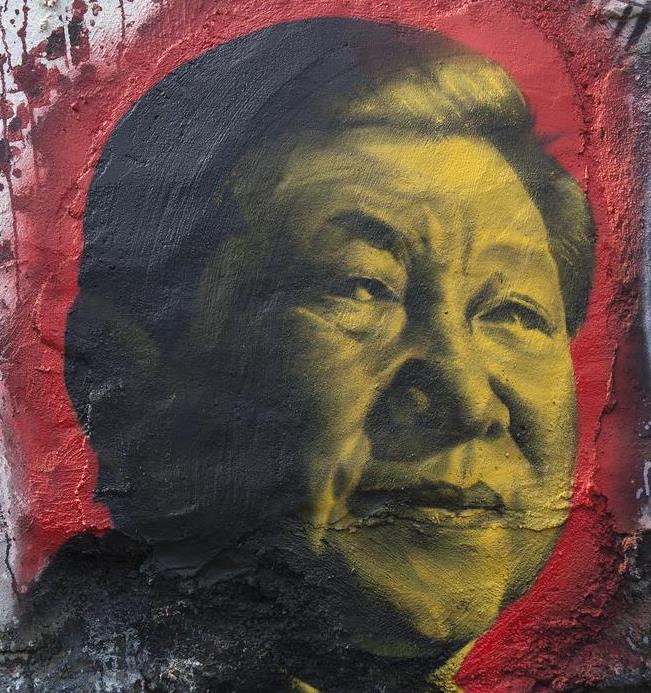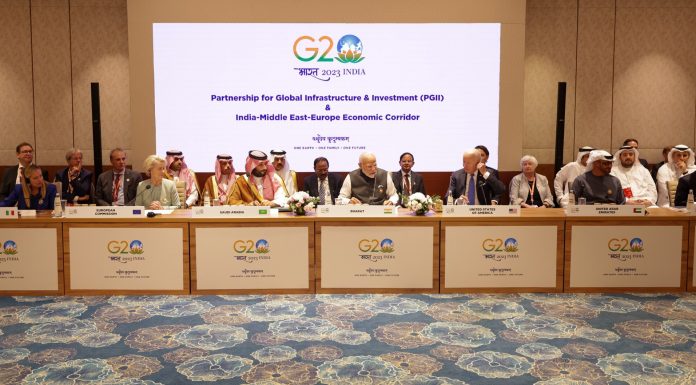By Belgian MEP Johan Van Overtveldt, (Belgian Finance Minister between 2014 and 2018, Chairman of the European Parliament’s Budget Committee and Professor of Economics at the University of Hasselt).
***
Writing for BrusselsReport.eu, following a high-level EU report on China which expresses concern about Chinese President Xi Jinping’s “authoritarian shift”, senior Belgian politician and MEP Johan Van Overtveldt takes a closer look at the policies of the Chinese government.
Last week, Chinese president and all-powerful party leader Xi Jinping called for a new world order in which “the rules set by one or several countries should not be imposed on others and the unilateralism of individual countries should not give the whole world a rhythm”. Xi launched these remarks at the Boao Forum for Asia, an event intended to be China’s alternative to the World Economic Forum in Davos.
There can be no doubt about it. In less than half a century, China has developed from one of the most backward and poorest nations in the world to one of the absolute top nations, politically, economically as well as military. No discussion on a new world order can be taken seriously if it does not encompass China. China’s main partners in this discussion – the United States, the European Union, India, Japan and Russia – should however not be naive when sitting down with Xi and his lieutenants. The Chinese agenda for such talks is absolutely clear and should be fought tooth and nail.
Since he came to power in 2012, Xi Jinping, the Chinese leader who is now more powerful than Mao Zedong ever was, has been increasingly adamant about what he considers to be China’s rightful place at the table of the world’s great powers. According to him, that place is right at the helm. Nobody should misread what Xi really means when he talks about a new world order. It is an order in which China is playing first fiddle and whereby it expects others to dance to the tune of that fiddle. Chinese officials fiercely and persistently deny this to be the case but one doesn’t have to be a sophisticated reader of tea leaves to see through this propaganda.
The main reason to be very critical about Xi and his inner circle leading the more than ever almighty CCP – or Chinese Communist Party – is that over the past years, they have proven to be untrustworthy.
Chris Patten, Chancellor of the University of Oxford, a former EU Commissioner and the last British governor of Hong Kong, is entirely right when recently arguing:
“The Chinese regime not only opposes the values that underpin the free societies but is totally untrustworthy, breaking his word whenever doing so suits Xi”.
Patten is echoed by Clyde Prestowitz, a veteran presidential advisor in the United States. In his recent book, The World Turned Upside Down. America, China and the Struggle for Global Leadership, he writes:
“Under Xi, China seems to be determined to resurrect the old Middle Kingdom as the new world hegemon … The CCP Party/state’s values are not only different from those of the free world but are hostile to them in fundamental respects”.
There are at least six very solid arguments backing up why Xi Jinping and his regime should not be trusted:
I.
First of all, under Xi, the monopolisation of political power to the benefit of the CCP has been hugely reinforced. In the process, a repressive Leninist surveillance state has been created. Xi’s 2021 China is a controlocray and as such, it serves as living proof of how modern communication and computer technology can be misused by a political elite to reduce personal freedom to an alien concept. Xi’s system is absolute when it comes to its efforts to control its citizens and unforgiving when it comes to sanctioning.
II.
Second, China shows no respect at all for international conventions and agreements. It is increasingly intimidating and militarily threatening towards Taiwan. Xi’s China has also shown complete disdain for what was agreed regarding the transfer of Hong Kong. The democratic forces of Hong Kong have been attacked and destroyed in the most drastic manner. China is also unconditionally claiming Tibet as an integral part of China. The repression of millions of mainly Muslim Uyghurs in China’s northwest is inhumane and degrading, and involves forced labor and re-education camps with appalling living conditions.
III.
Third, China is not only claiming to have a much larger territory than it actually has, it is also continuously threatening its neighbors. Despite explicit promises to the contrary, Xi and his regime have started a systemic militarization of artificial islands in the South China Sea. Recently, China also provoked several border incidents with India and it has threatened Vietnam, another neighbor. Countries like Australia and New Zealand, seen by Beijing as among the weaker links of the Western camp, are regularly intimidated and subject to what Australian professor and China watcher Clive Hamilton has described as a “silent invasion” by China.
IV.
Fourth, China continuously operates and reinforces a massive espionage network in the United States, the European Union and most advanced Asian countries, like Japan and South Korea. This network not only focuses on political and military information, but also on the intellectual property of Western companies and think tanks. China is engaged in cyber terrorism. Claims that companies like Huawei would be independent entities are flagrant lies. Every Chinese entity, even supposedly private major companies, are in reality part of the CCP’s power complex and they act according to that power structure’s demands and requests.
V.
Fifth, the massive “Belt and Road Initiative” which, as claimed by Beijing, would be to strengthen the worldwide infrastructure of China’s trading partners, is in reality pure imperialism. China has reserved 3 Trillion dollars for this project. It serves as the vehicle spearheading China’s ruthless scramble for energy and raw materials. Africa is one of the main targets of this initiative, which increasingly boils down, as experienced by several African countries, to a new kind of colonialism, often worse than earlier forms of colonialism.
VI.
Sixth, even if it may have been welcomed by a large majority of Chinese citizens, Xi and his acolytes’ have really turned their intense “anti-corruption” campaign into ruthless purges meant to “weeding out the disloyal”, as The Economist recently documented.
In sum, the free world should be realistic about Xi Jinping’s China, which needs to be recognized for what it is: a major economic, political and military power which is rightfully claiming its place within the international order, while at the same time, its leadership has proven to be untrustworthy and should be treated as such.
There can be no place for naivety.
Disclaimer: www.BrusselsReport.eu will under no circumstance be held legally responsible or liable for the content of any article appearing on the website, as only the author of an article is legally responsible for that, also in accordance with the terms of use.













